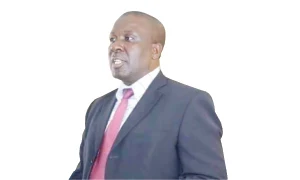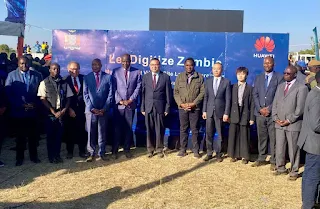THEY IS NEED TO HAVE GOOD QAULITY SEED AND SUFFICENT FOR THE
FARMERS - Mtolo
By Daily News Reporter
Zambian seed industry such maize is a robust and competitive
in Sub-Saharan Africa. It operates within a highly pluralistic system,
comprising both formal and informal sectors. The informal sector includes
farmer-managed seed systems (FMSS) and NGOs promoting seed exchange. In FMSS,
farmers freely share and exchange seeds for various items, including food and
labor. This system reflects Africa’s rich cultural heritage.
There’s an ongoing push to transform the seed sector into a
commercialized entity owned by a few. However, this transition often remains
more theoretical than practical.
Efforts to commercialize seeds sometimes marginalize
traditional seed varieties, which are essential for preserving agro-biodiversity
and building resilience against climate change.
And Disconnections between policy and law hinder the
sector’s ability to address developmental challenges and fulfill human rights
related to food security.
While achievements exist, challenges persist. Balancing
commercialization with the preservation of traditional seeds is crucial for
sustainable agricultural development in Zambia,
To address these advanced seed system in the country, Zambia
held its (2) second National Seed Congress in Lusaka under the theme: Repositioning
Zambia as a Continental seed Hub in the face of Climate Change”
Speaking on behave of the President of the Republic of
Zambia Mr. Hakainde Hichilema, at the conference Reuben Mtolo Phiri, Minister
of Agriculture has issued a stern warning against those involved in selling
fake seeds and fertilizers.
He emphasized that these counterfeit products hinder
economic development in the agriculture sector. Mr. Phiri is committed to
putting an end to such practices, deeming them unacceptable.
Also stated that they is need to have sufficient and good
quality seed available to farmers to improve the agriculture sector,
“We can’t attain national food and Nutrition security and
the sustainable development goal No 2 Zero hunger without good quality seeds,”
Mtolo said.
He added that government will continue to support seed
industry by aligning the seed certification system to international standards.
Additionally, Marx Mbunji, President of the Zambia Seed
Trade Association (ZASTA) has provided reassurance regarding seed stocks.
He affirmed that Zambia has ample seed reserves to cater to
local demand, export orders, and business needs.
And that ZASTA will continue to engage in with the Ministry
of Agriculture to safeguard these local stocks and prevent any unwarranted
speculation. Ensuring a stable seed supply is crucial for sustainable
agricultural development and food security in the country.
Collaboration between the government and the seed industry
is crucial for enhancing seed systems, especially for resilient crops. They is
need of encouraging private sector investment in research and production is
essential. By incentivizing companies to invest in developing high-quality
seeds, we can improve access to resilient crop varieties.
And ensuring that seeds meet quality standards is vital. The
government can establish regulations and certification processes to guarantee
seed quality. This benefits both farmers and consumers.
Such as training programs for farmers and seed producers can
enhance their knowledge of seed production techniques, storage, and
distribution. This empowers them to contribute effectively to the seed system.
Highlighting the importance of resilient crops (such as drought-tolerant or
disease-resistant varieties) encourages their adoption. These crops contribute
to food security and climate resilience.
Additionally Facilitating connections between seed producers
and consumers ensures efficient seed distribution. Farmers need access to
quality seeds, and consumers benefit from nutritious produce.
By fostering collaboration and implementing supportive
policies, we can strengthen seed systems and promote the consumption of
resilient crops.

.jpg)













